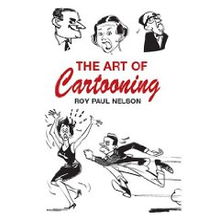Content:
Fishing, an ancient pastime, has captivated the hearts of countless individuals around the world. Whether you are a beginner or an experienced angler, mastering the art of fishing can elevate your experience to new heights. In this article, we will delve into the essential tips and techniques that will help you become a skilled angler in no time.
Understand the Basics
Before you can become proficient at fishing, it is crucial to understand the basics. Familiarize yourself with the different types of fishing, such as freshwater, saltwater, fly fishing, and spin fishing. Each type requires specific equipment and techniques, so make sure you are well-versed in the basics of your chosen fishing style.
Choose the Right Equipment

Investing in high-quality fishing gear is essential for success. Here are some key pieces of equipment you should consider:
a. Rod and Reel: Select a rod and reel that are appropriate for your fishing style and the type of fish you are targeting. Make sure the rod is lightweight and flexible enough to handle the fish you expect to catch.
b. Lures and Baits: Experiment with various lures and baits to determine which ones work best in your fishing environment. Soft plastics, spinnerbaits, and jigs are popular choices for a wide range of fish species.
c. Tackle Box: A well-stocked tackle box is a must-have for any angler. Include essential items such as hooks, sinkers, swivels, and various lures and baits.
d. Line: Use the appropriate line strength for the fish you are targeting. Monofilament, fluorocarbon, and braided lines all have their advantages and disadvantages, so do your research to determine which is best for your needs.
Learn the Techniques
Once you have the right equipment, it is time to learn the techniques that will help you catch more fish. Here are some essential fishing techniques:
a. Casting: Master the art of casting to ensure your lure or bait lands precisely where you want it. Practice different casting techniques, such as the overhead cast, sidearm cast, and roll cast, to become a proficient caster.
b. Baiting: Learn how to properly bait your hook to attract fish. Whether you are using live bait, artificial lures, or a combination of both, make sure your bait is presented in an appealing manner.
c. Patience: Fishing requires patience and persistence. Learn to wait for the right moment to set the hook, as impatience can lead to missed opportunities.
d. Reading the Water: Pay attention to the water's surface and structure to identify potential fish-holding areas. Look for signs such as baitfish activity, surface disturbance, and submerged vegetation.
Understand Fish Behavior
To become an expert angler, it is essential to understand the behavior of the fish you are targeting. This knowledge will help you determine the best time of day, location, and bait to use. Here are some factors to consider:
a. Seasonal Changes: Fish behavior can change with the seasons. Learn about the migration patterns and feeding habits of your target species throughout the year.
b. Weather Conditions: Pay attention to weather patterns, as they can significantly impact fish activity. Overcast days, high winds, and changing water temperatures can all influence fish behavior.
c. Water Temperature: Fish are highly sensitive to water temperature. Learn how to adjust your approach based on the temperature of the water you are fishing.
Continuous Learning
Becoming an expert angler is a continuous learning process. Keep an open mind and be willing to adapt your techniques based on your experiences. Here are some ways to enhance your knowledge:
a. Join a Fishing Club: Connect with other anglers to share tips, tricks, and stories. Fishing clubs often host workshops and seminars that can help you improve your skills.
b. Read Books and Magazines: There is a wealth of information available on fishing techniques, equipment, and fish behavior. Stay updated with the latest trends and techniques by reading fishing books and magazines.
c. Attend Workshops and Seminars: Participate in workshops and seminars hosted by experienced anglers and fishing professionals. These events can provide valuable insights and hands-on training.
In conclusion, mastering the art of fishing requires dedication, practice, and a willingness to learn. By understanding the basics, choosing the right equipment, learning essential techniques, understanding fish behavior, and continuously improving your skills, you will become a skilled angler in no time. Happy fishing!












